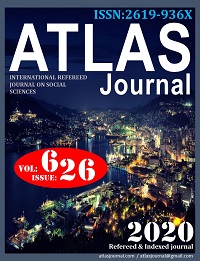VIEW THE SLOW CITY APPROACH FROM A CULTURAL PLANNING PERSPECTIVE
DOI:
https://doi.org/10.31568/atlas.400Keywords:
Urban, Urban Planning, Local Government, Slow City, Cultural PlanningAbstract
Cities are constantly dynamic. They can therefore be likened to a living organism. There are physical, social, economic, cultural, political and psychological influences within this structure. Accurate analysis of the cultural structures of cities is very important for urban planning. One of the elements that distinguishes a city from others is urban culture. Urban culture is a combination of material, spiritual, mental and emotional characteristics. Urban planning is not just the formation of the physical macroform that the city will take in the future. It is important that social relations are reflected in space. When looking for solutions to existing and potential urban problems, cultural structure should be taken into consideration. One of the contemporary planning approaches in recent times is the “slow city”. Cities under 50,000 population can be members.It is a network of cities that attaches importance to the preservation of their traditions, customs, food and historical identity. The slow city aims to create development by preserving the existing spirit of the city. Understanding the urban cultural structure, improving the common life, improving the quality of life, protecting the environment, and caring about the sustainability of local values. Cultural elements are the heritage of the cities. Planning concept plays an active role in the transmission of these towards the future. Cultural planning provides an opportunity to re-evaluate urban values in participatory environments. This study examines cultural planning in cities in terms of “slow city”. There are criteria necessary for a city to be defined as a slow city. Examining these criteria in terms of cultural planning contributes to the organization of urban cultural sustainability. This idea is effective in increasing the importance given to the local population in the world. In our country, cultural sustainability should be considered in the contemporary planning practices of local governments.
Downloads
Published
How to Cite
Issue
Section
License

This work is licensed under a Creative Commons Attribution-NonCommercial 4.0 International License.


